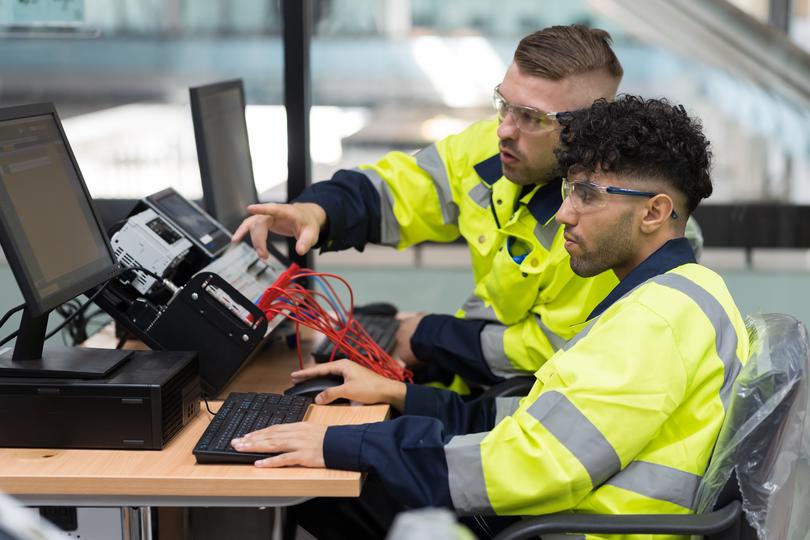SUSSAN LEY: Smart kids go to uni, the rest do a trade. This outdated thinking is holding Australia back
SUSSAN LEY: We should no doubt be striving for excellence in all fields of education, but our fixation with the ATAR is something we need to challenge. Who made the ATAR king anyway?

We are failing our kids and we need to talk about it.
And it’s a conversation we need to have now before our kids go back to school.
Last year wrapped with another cohort graduating Year 12. They’ve earned a break and are worthy of our recognition.
Sign up to The Nightly's newsletters.
Get the first look at the digital newspaper, curated daily stories and breaking headlines delivered to your inbox.
By continuing you agree to our Terms and Privacy Policy.But something struck me.
The race to top the Australian Tertiary Administrations Rank was front page news.
The honour roll stretched 40 pages with a dozen ads for some of the most expensive schools in the nation.
There were interviews with those who received the highest scores.
For thousands of students and their families getting that ATAR was rightly a moment of achievement and pride.
But despite being inspired by the success of so many from our next generation I have been stuck with a burning question: who made the ATAR king anyway?
We should no doubt be striving for excellence in all fields of education, but our fixation with the ATAR is something we need to challenge.
Getting a high ATAR is not an end unto itself.
We give it status because it unlocks doors that lead to careers, jobs and livelihoods.
At the heart of it, the ATAR gets you into the university you want to go to, and the course you want to study.
But where was the national spotlight on the achievements of our most accomplished vocational students?
Why can we list off prestigious and selective schools, geared towards getting into unis, but almost no one can point to a prominent vocational technical college?
The truth is the ATAR is the focus of the vast majority of our schools across Australia.
Despite being wholly reliant on our vocationally qualified workers, Australia has become a university nation — to a fault.
In the decade from 2011 to 2021 the number of Australians with a university degree increased almost 70 per cent.
For a vocational qualification, like a trade or a traineeship, the increase was just 25 per cent.
We’ve been pushing our kids to go to university.
It’s led to a lot of them getting degrees they don’t use, and debt they can’t afford to repay.
A big part of the problem is the culture our school system imprints in students.
There is a vocational cringe in Australian schools.
University, kids are told, is for the smart kids. The rest go to TAFE.

TAFE, despite being the state-run vocational education provider, like a public school, has become shorthand for all vocational education, which contributes to vocational cringe.
Vocational cringe is why, while 50 per cent of German students do a trade or qualification, just 1 per cent of Australian students do a school-based apprenticeship today.
We need to confront the vocational cringe in the schools we have, or we need to build new ones.
This needs to be a national priority because this vocational cringe is having a real impact on our prosperity and social fabric.
It has led to skills shortages across our economy and reliance on foreign workers.
The latest data indicates 33 per cent of all occupations are in shortage.
According to Jobs and Skills Australia, skills shortages worsened after the change of government to Labor and remain higher than under the Coalition.
Over Labor’s first year in office from June 2022 to June 2023 skills shortages increased by 12.5 per cent.
We also just found out that we have 80,000 fewer apprentices and trainees in the training pipeline since Anthony Albanese became Prime Minister too.
Labor’s skills policies like Free TAFE have not done anything to change the structural issues of skills in Australia.
Labor’s rhetoric in office has made Vocational Cringe worse, like when Education Minister Jason Clare called going to university “the golden ticket”.
But this is bigger than politics.
The rise of artificial intelligence means a white collar job and a university degree is not the safe bet it used to be.
Automation used to kill factory jobs, now it’s coming after copywriters, financial analysts, accountants and lawyers.
In a world where Chat-GPT can pen an essay or a business plan in seconds, skills are fast becoming the most precious commodity in our economy. Our schools are leaving too much potential untapped.
We also desperately need skilled workers to build more homes, and to care for our growing and ageing population.
Skilled workers are vital for us to stay safe and strong in a worsening global security environment.
Who is going to build our nuclear submarines, or the houses we need?
Who will care for our youngest and oldest Australians, modernise our national infrastructure and transition to zero emission nuclear power?
The next generation of workers is on school holidays today, but they will be back in the classroom soon.
Australia needs to kill vocational cringe for good.
We need to kick the ATAR off its throne.
We need to get skills back in our schools.
And if we can’t fix our schools we need to build new ones.
Sussan Ley is the Deputy Leader of the Opposition
